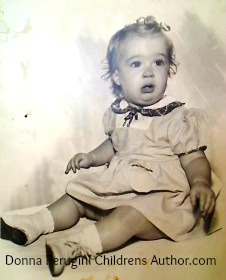My Baby’s Oral Health? But He Has No Teeth!
 Baby’s Oral Health Begins Early
Baby’s Oral Health Begins Early
Baby’s oral health begins before teeth even appear. Start off right and you’ll reap the benefits years later when all their adult teeth appear.
Your Oral Health Has an Impact on Your Child’s Oral Health
“Children born to mothers with high rates of dental cavities are more likely to develop childhood cavities themselves.”
Oral bacteria responsible for cavity formation is passed from parent to child through common daily contacts. You ask, ‘”How could that be?”
- Sharing utensils
- Cleaning the pacifier by putting it in your mouth or spitting on it
Should I clean my baby’s gums before teeth even appear?
Yes and continue to brush them once teeth appear, brushing them morning and evening. Just another thing to do? Actually it’s a good habit to begin.
What about bottles and bed?
Sugars in the formula, juice or milk sit on the teeth throughout the night. This allows bacteria to prosper and cause decay. Avoid this practice from the start. I had a friend who would dip her baby’s pacifier in honey. After coming out of the honey with a big blob of it on the pacifier, she would lay him down, plug the passy in and let him fall to sleep. Yes, he had baby teeth. You may think of your baby’s teeth being expendible. After all, they will lose the baby teeth and have adult teeth. Why bother caring for the baby teeth?
Cavities in Baby Teeth Can Transfer to Permanent Adult Teeth
Did you know that the baby teeth have the adult teeth forming underneath them? The cavities from the baby teeth can transfer to the adult teeth. We lived next to neighbors who had children that could eat all the sweets they wanted and had pop everyday…as much as they wanted. Those children had blackened teeth.
Falling Asleep with the Baby Bottle in Their Mouth
If your baby has already become accustomed to falling asleep with a bottle, you can change that habit. Prolonged use of the bottle is a common cause of tooth decay. It’s recommended that bottle use be discontinued completely by 15 months of age. Introduce your baby to a sippy cup at six months to help ease transition later down the road.
Talk with your pediatrician about when to have the baby’s first check-up with a dentist. What you do with your baby early for oral health will determine how much dental work they will need in the future.
Any other ideas about baby’s oral health? Leave your thoughts for our community of readers!







Great article Donna. Lots of moms will benefit from this.
Linda Kinsman recently posted..Presidents Day
Donna, thanks for this useful tips. As a mom I appreciate things that are essential for my baby’s welfare. And I will recommend this with my in laws who has a 7-month old baby too!